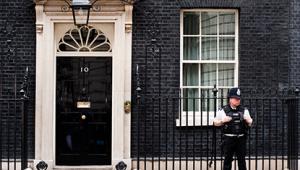25 November 2010
Education Secretary Michael Gove has come under fire for his proposals to give councils a ‘critical new role’ in local education provision, outlined in yesterday's white paper on education.
The paper, The importance of teaching, sets out plans to give as many schools as possible academy freedoms, placing them outside of local authority control.
Councils will instead become ‘strengthened champions of choice’, ensuring that there are enough school places in their area, and that parents have a mix of schools to choose from.
Local government is also to be given a new ‘strategic commissioning’ role in areas where every school is an academy.
No firm commitments have been made about funding, with Gove delaying decisions on the terms of the new national funding formula and the pupil premium for deprivation. How independent state schools are funded relative to those controlled by councils will also be reviewed, prompting fears that the system could be geared in favour of academies.
John Fowler, education policy analyst at the Local Government Information Unit, said the ‘new role’ did not involve anything councils had not already been doing for years.
‘But the white paper might constrict what they have been doing, not least as more schools become academies. There’s less of a role in terms of managing finance, things like that.
‘As resources are taken away for the pupil premium, they won’t have the money that they have been getting for things like school improvement.’
James Hulme, director of communications at the New Local Government Network, said: ‘I don’t think you can dress these reforms up as being particularly good news for the local government role in education.’
He said the new commissioning role was ‘very confusing’, as it is not clear what resources councils would have to commission with.
Hulme also questioned a £35m ‘collaboration incentive’ for the best academies to support their struggling neighbours – which the white paper said would be expected of academies anyway – as potentially diverting funds away from schools most in need.
Martin Freedman, head of pay, conditions and pensions of the Association of Teachers and Lecturers, told Public Finance he was concerned that Gove’s reforms would break a link between the education system and councils’ social services work.
‘Councils have quite a big role in special education needs because they have a co-ordinating function. Even if a school can’t provide for a special need, they can ensure they get help. And councils provide some services, like educational psychology, centrally.
‘I wouldn’t have thought that better-funded schools, collaborating more, would do that as well. Councils have the experience and expertise, and get better economies of scale.’
He added that plans to make school spending data publicly available could lead to ‘dodgy conclusions’ linking performance to pay, without taking other value-for-money factors into account.
However the Local Government Association largely welcomed the plans, saying they showed ‘ministers have listened’ to councils.
Shireen Ritchie, chair of the LGA’s children and young people board, said she was ‘pleased’ that ministers had opted to keep councils part of the education finance system, after previously indicating that they would be bypassed in favour of direct funding for schools.
But Ritchie added that ministers should make sure that money was fairly distributed and that the same opportunities were available to all.
‘Reassuring parents that their children are being treated fairly depends on having a system where all schools are on a level playing field.’



















